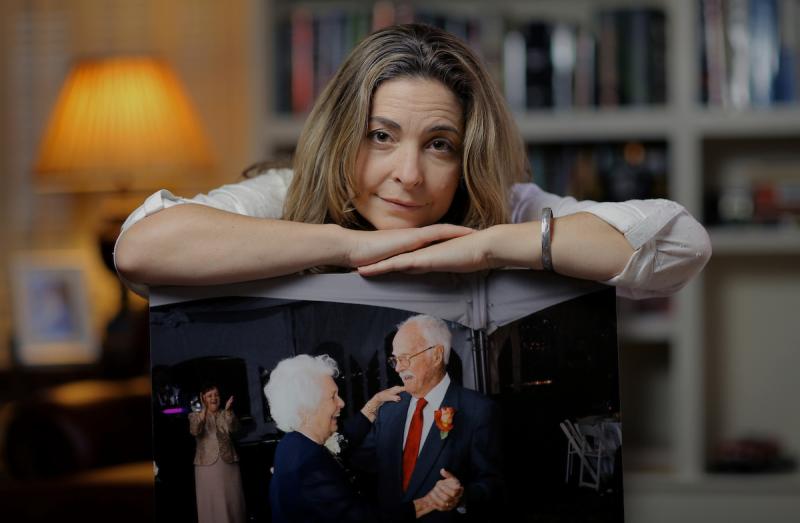
In 2016, the Duke School of Medicine selected 38 of its faculty for the new Duke Health Scholars and Duke Health Fellows Program. With funds from the Duke University Health System, the program supports the research efforts of early to mid-career clinician-scientists at Duke. Among the faculty honored are 14 individuals from the Department of Medicine, including Heather Whitson, MD, MHS, associate professor of medicine (Geriatrics) and ophthalmology. Dr. Whitson is deputy director of the Duke Aging Center.
Thanks to Dr. Whitson, patients at Duke University Medical Center’s low-vision clinics with cognitive deficits are better positioned to learn how to use tools designed to help them see better. That’s because Whitson’s interdisciplinary research shows that coaching improves when clinic therapists start small and help these patients build skills slowly.
That work grew out of Whitson’s research into multiple links between vision loss and cognitive decline, including their potential shared etiologies. The studies one day could allow doctors to use eye exams to detect early onset of Alzheimer’s disease, an event now invisible to patients and their clinicians.
“I like identifying a question and taking a very strategic approach to finding the answer,” said Whitson.
Whitson never expected to dive so deep into vision or brain research while a Stanford University undergraduate or even when she left Cornell Weill Medical School to start a medicine residency at Duke in 2000. But embracing challenging puzzles runs in her family. John Bagby, PhD, her grandfather, directed a CDC program that eradicated the last vestiges of malaria in the United States in the 1950s. While Missouri state health director much later, the microbiologist pushed for a public-health response to the rise of AIDS, championing confidentiality and expanded care at a time when some people viewed HIV infection as a moral failing.
“I was very inspired by the idea that he got to experience medicine that could impact not just the people in front of him but also a bigger population,” Whitson said.
During a geriatrics fellowship at Duke, Whitson decided to explore how to improve care of elderly patients with multiple chronic conditions, something most people older than 70 endure. Whitson decided to focus on conditions that occur together frequently and can generate disproportionate disability.
Right now macular degeneration is really conceived as an eye disease. This could bring a paradigm shift. It is an eye disease, but does it also have implications for understanding the brain?
Heather Whitson, MD, MHS
Her grandmother pointed her toward looking at vision loss and the brain.
Like her husband, Billie Bagby held a PhD, a rare feat for an American woman born in 1920. After a career in education, the psychologist in her sixties achieved a longtime dream and earned a pilot’s license too. But macular degeneration grounded her late in life.
Whitson was surprised that her clever grandmother had trouble mastering tools such as video magnifiers that would have helped her better adapt to her vision loss. “It’s not like she was afraid of technology. She was a pilot,” Whitson says.
A mix of slight cognitive decline and vision loss were to blame, Whitson came to understand. With collaborators at Duke and as far away as Singapore, Whitson now explores the implications of that co-morbidity widely, with highly practical results.
“Heather has shown that the odds of disability among seniors with co existing vision and cognitive impairment is more than six times higher than that of seniors with good vision and cognition,” said Mary Klotman, MD, dean of the Duke School of Medicine.
Dampening disability
Whitson has demonstrated that when you understand how co-existing health conditions such as vision and cognitive losses interact, you are better equipped to reduce their effects.
With optometrist Diane Whitaker, DO, she has shown that teaching patients with mild cognitive impairment and vision loss a low number of tasks at one time improved mastery of vision aids and more. Patients enrolled in what Whitson calls Memory or Reasoning Enhanced Low-Vision Rehabilitation (MORE-LVR) experience gains in visual function, memory, and achieving their rehabilitation goals.
Whitson and co-investigators, including Duke ophthamologists Eleonora Lad, MD and and Scott Cousins, MD, are leading multiple mechanistic studies exploring biological links between vision and brain changes. One explores neurological changes in people with age-related macular degeneration that could help illuminate how aging brains respond to the stressor of sensory deprivation such as vision loss.
Whitson’s working hypothesis is that some of the cognitive loss might result from a person’s brain working in altered ways to sustain certain abilities after losing vision, something that functional MRI might capture. “Everything comes at a cost,” Whitson said.
“Right now macular degeneration is really conceived as an eye disease. This could bring a paradigm shift. It is an eye disease, but does it also have implications for understanding the brain?” Whitson said.
Another study assesses whether imaging of retinal nerve tissue, including nerve fiber layers and ganglion cell layers, could unveil biomarkers that signal early signs of Alzheimer's disease. Studying changes in retinal tissue holds great promise in better understanding neurological changes in the brain because it is the only component of the central nervous system observable with only light.
In all of her work, Whitson’s overriding goal is to help elderly patients gain or preserve physical resilience, a primary thrust of the Duke Pepper Older Americans Independence Center, where she is a core leader.
“Dr. Whitson is at the heart of pushing this field forward,” said Kenneth Schmader, MD, chief of the Division of Geriatrics.
The series of profiles of our Duke Health Scholars were written by Catherine Clabby, freelance science journalist. Photos are by Ted Richardson.